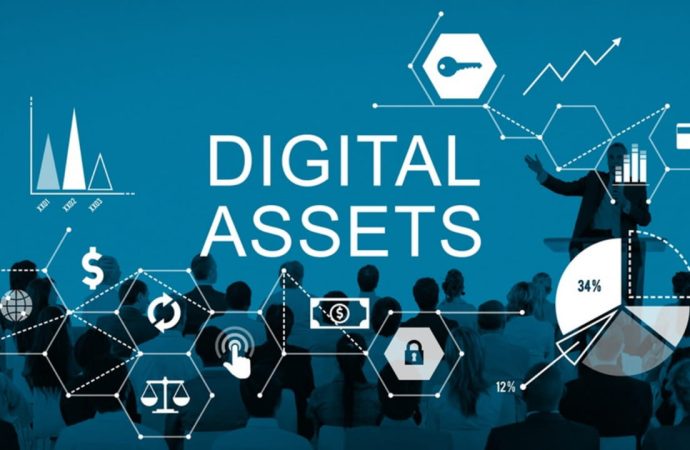Introduction The rise of digital assets, particularly cryptocurrencies, has introduced a major shift in the landscape of wealth management. For centuries, wealth management has been primarily focused on physical assets like real estate, stocks, bonds, and other traditional investments. However, with the advent of blockchain technology and cryptocurrencies like Bitcoin and Ethereum, digital assets have
Introduction
The rise of digital assets, particularly cryptocurrencies, has introduced a major shift in the landscape of wealth management. For centuries, wealth management has been primarily focused on physical assets like real estate, stocks, bonds, and other traditional investments. However, with the advent of blockchain technology and cryptocurrencies like Bitcoin and Ethereum, digital assets have started to play a significant role in the financial sector. These assets have disrupted conventional investment strategies, creating both challenges and opportunities for wealth managers. In this article, we explore the impact of digital assets on wealth management, how they are reshaping the industry, and what clients and advisors need to understand.
What Are Digital Assets?
Digital assets are any form of asset that exists in digital form, including cryptocurrencies, tokens, NFTs (non-fungible tokens), and even digital representations of traditional assets. Cryptocurrencies like Bitcoin, Ethereum, and other altcoins have grown in popularity due to their decentralized nature and their ability to be used for various purposes such as payments, investments, and store of value. NFTs, on the other hand, represent ownership of unique digital items, ranging from art to virtual real estate.
While digital assets may seem like a modern innovation, they are also part of a broader trend of digital transformation across industries. As these assets continue to gain adoption, they are expected to revolutionize the way wealth is stored, invested, and transferred.
Impact of Digital Assets on Wealth Management

Image by Yandex.com
1. New Investment Opportunities
One of the most significant impacts of digital assets on wealth management is the creation of new investment opportunities. For example, cryptocurrencies have emerged as an alternative asset class, attracting both retail and institutional investors. Digital assets like Bitcoin are often viewed as a hedge against inflation, similar to gold, while others offer potential for high returns in volatile markets.
Wealth managers now need to understand how to incorporate these assets into diversified portfolios. Digital assets have a unique risk profile that requires in-depth analysis, due diligence, and understanding of market behavior. For wealth managers, this means adapting traditional investment strategies to accommodate these new assets.
2. Portfolio Diversification
Traditional portfolios rely on a mix of stocks, bonds, and real estate to balance risk and reward. However, digital assets provide a new avenue for diversification. Bitcoin, for instance, has been found to have a low correlation with traditional assets, making it a useful tool for diversification. This allows wealth managers to create portfolios that are less susceptible to market downturns and offer greater upside potential in bull markets.
Digital assets also offer international diversification opportunities. Cryptocurrencies can be easily accessed and traded globally, without the constraints of geographic borders, currency fluctuations, or market hours. This opens up a wealth of opportunities for high-net-worth individuals looking to diversify their wealth across different asset classes and geographies.
3. Challenges in Regulatory and Compliance Issues
Despite the exciting prospects, digital assets present significant challenges in terms of regulation and compliance. Unlike traditional financial markets, which are well-regulated, the world of cryptocurrencies and digital tokens operates in a largely unregulated environment. This can pose risks for investors, as the lack of oversight can lead to issues like fraud, market manipulation, and inadequate investor protection.
Wealth managers need to navigate these complexities and ensure they are providing clients with compliant investment options. Staying updated on the evolving regulatory landscape is crucial for ensuring that wealth management practices align with legal requirements.
4. Security and Custody of Digital Assets
Another challenge presented by digital assets is the issue of security. Unlike traditional assets, which can be securely stored in banks or financial institutions, digital assets are typically stored in digital wallets or on decentralized platforms. These wallets are vulnerable to hacking, and any security breach can result in a significant loss of wealth.
To address this challenge, wealth managers must partner with trusted digital asset custodians or use institutional-grade security solutions. It’s essential to ensure that clients’ digital assets are stored safely and that robust risk management protocols are in place to protect against cyber threats.
5. Increased Client Demand for Digital Asset Exposure
As the popularity of cryptocurrencies and other digital assets grows, clients are increasingly demanding exposure to these assets within their investment portfolios. Wealth managers must respond to this demand by providing guidance on how to incorporate digital assets in a manner that aligns with their clients’ financial goals.
Understanding the specific needs of clients—whether they are interested in short-term speculative investments or long-term exposure—is crucial for developing customized wealth management strategies. This requires not only knowledge of digital assets but also the ability to educate clients about the risks and rewards involved.
Opportunities for Wealth Managers

Image by Yandex.com
1. Blockchain Technology in Wealth Management
Blockchain technology, the backbone of digital assets like Bitcoin, offers several benefits to wealth management beyond cryptocurrencies. One of the most promising applications of blockchain is in enhancing transparency, security, and efficiency in financial transactions. For wealth managers, blockchain can simplify processes such as asset transfer, reporting, and client verification.
By adopting blockchain-based solutions, wealth managers can provide more secure, transparent, and efficient services to clients. This can lead to improved trust and client retention, as blockchain technology ensures that transactions are tamper-proof and verifiable.
2. Rising Demand for Digital Asset Advisory Services
With the growing interest in digital assets, wealth managers who can offer expertise in this field stand to gain a competitive advantage. There is a significant opportunity for wealth managers to expand their services by offering digital asset advisory and management, catering to clients who are eager to invest in this new asset class.
By partnering with cryptocurrency exchanges or working with fintech firms that specialize in digital asset management, wealth managers can help clients navigate the complexities of investing in these assets while managing risk effectively.
Analysis Table: Key Factors Affecting the Role of Digital Assets in Wealth Management
| Factor | Impact on Wealth Management |
|---|---|
| Market Volatility | High volatility in digital assets can increase risk but also offer high reward potential. |
| Regulatory Uncertainty | The lack of clear regulation in digital asset markets creates compliance challenges for wealth managers. |
| Security Concerns | Digital assets require robust security measures to prevent theft and hacking. |
| Client Demand | Growing client demand for exposure to digital assets increases opportunities for wealth managers to offer new services. |
| Blockchain Integration | Blockchain offers potential for more efficient, secure, and transparent wealth management solutions. |
Comparative Table: Traditional Assets vs. Digital Assets in Wealth Management
| Characteristic | Traditional Assets | Digital Assets |
|---|---|---|
| Volatility | Generally stable with lower risk | High volatility and risk, potential for high returns |
| Regulation | Well-regulated and compliant with financial laws | Largely unregulated, evolving legal landscape |
| Diversification | Geographic and sectoral diversification options | Global diversification with decentralized assets |
| Security | Safe in custodial banks or institutions | Vulnerable to hacking, requires digital security solutions |
| Market Hours | Operates within established hours | 24/7 trading globally |
Conclusion
The impact of digital assets on wealth management is undeniable. As the landscape of finance continues to evolve, wealth managers must adapt to the changing needs of clients by embracing digital assets. This includes navigating new investment opportunities, managing risks related to volatility and security, and staying informed about regulatory changes.
While digital assets present challenges, they also offer unique opportunities for wealth management, including portfolio diversification, blockchain integration, and the rise of digital asset advisory services. By staying ahead of the curve and adopting best practices, wealth managers can position themselves to thrive in this new era of digital wealth management.
















